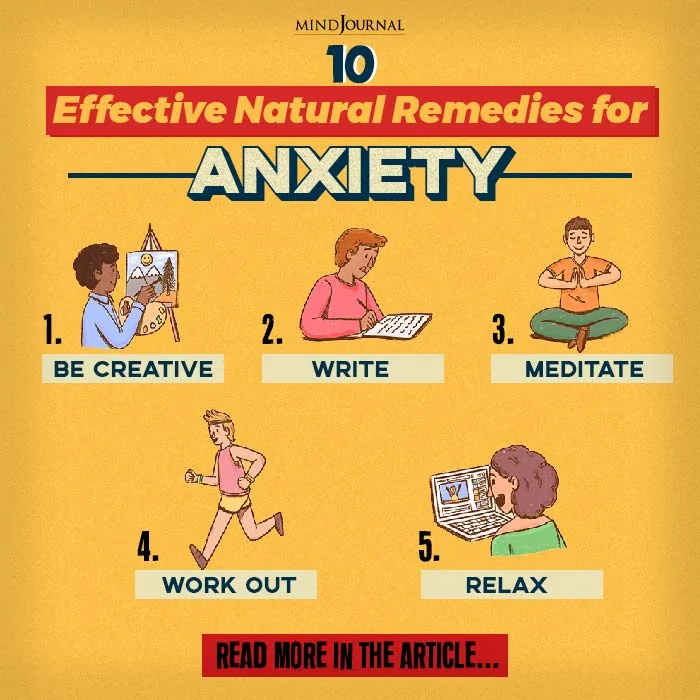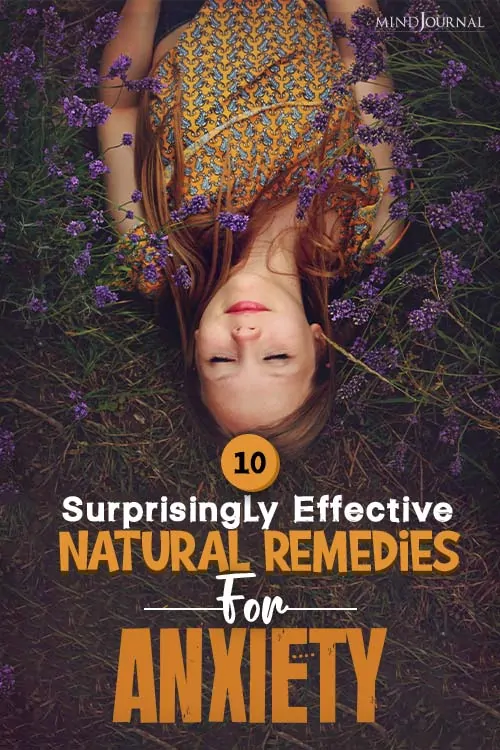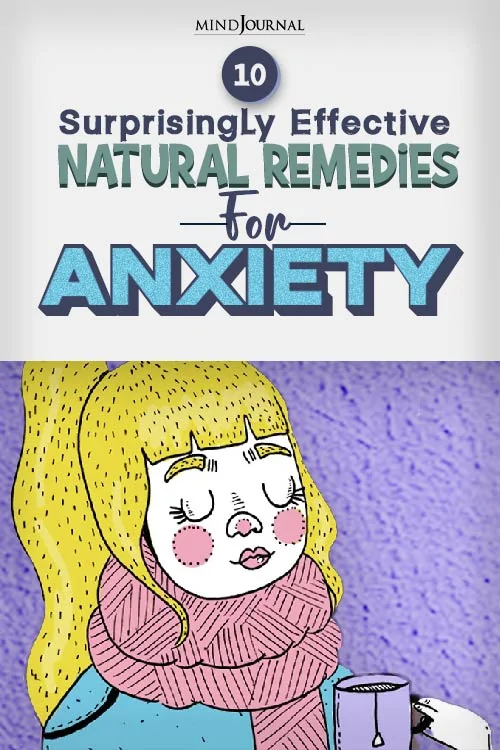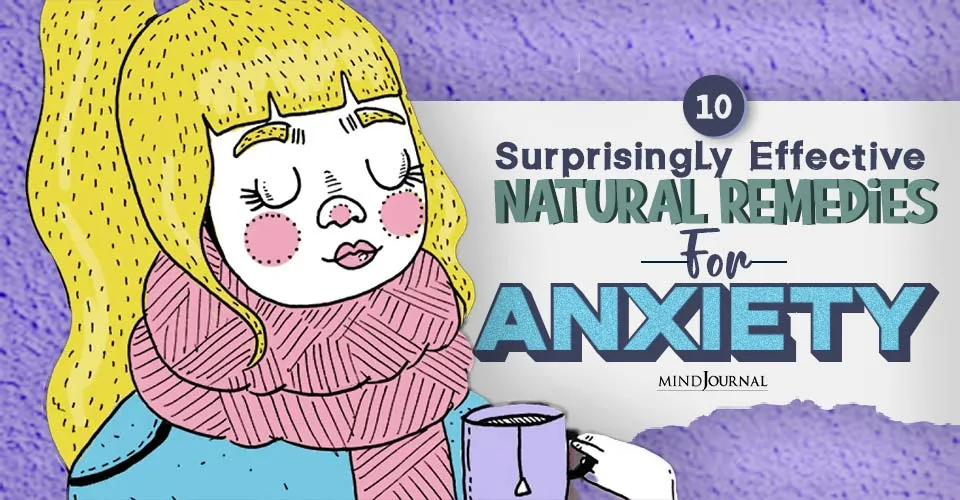A little anxiety is normal and even necessary as a survival instinct, but when it affects our daily functioning, it becomes an issue. In order to prevent anxiety from influencing the quality of your life, you can check out the below-given ideas on natural remedies for anxiety.
Anxiety comes with living in today’s fast-paced world of cut-throat competition. However, you must not confuse anxiety with anxiety disorder, which is chronic and often debilitating to the point where it compromises our way of living.
There are several ways to counter anxiety disorder, including medication, cognitive behavioral therapy, and more. If you are searching for all-natural remedies to curb anxiety issues, you might want to consider making a few lifestyle changes and start practicing healthy habits. To know more in detail, read till the end.
What Is Anxiety?
Anxiety is our body’s natural reaction to any kind of stress or danger. It helps us to prepare or escape perils. But uncontrollable, chronic, or excessive anxiety poses a threat to our well-being.
Some Common Anxiety Symptoms:
- Restlessness
- Fast breathing
- Increase in heart rate
- Trouble focussing on tasks
- Panic attacks
Read: The Perfectionist’s Trap: How Perfectionism Robs Us Of Our Humanity
10 Natural Remedies For Anxiety

No matter how demanding or stressful your daily routine may be, you can always make little adjustments in your lifestyle and make room for habits that will go a long way in improving your emotional and mental well-being, keeping anxiety at bay.
1. Active Life
Research suggests that exercise and an overall physically active lifestyle can help lower the effects of chronic diseases like anxiety. Exercise helps to take your mind off of things that are causing you to get anxious. Moreover, when you work out, your heart rate goes up, which changes your brain chemistry, creating anti-anxiety neurochemicals. Regular exercising also improves concentration, which in turn helps to reduce stress and anxious thoughts.
2. Meditation
Anxiety disorder gives birth to racing thoughts and can make you feel overwhelmed easily. With meditation, you can calm your mind, process your puzzling emotions, and have a more composed and perceptive outlook. You can also combine meditation with yoga and other mindfulness exercises. Even research acknowledges that meditation can be helpful to manage the symptoms of anxiety disorder.
3. Aromatherapy
The soothing essence of various essential oils like lavender, bergamot, etc., is highly effective to ease an anxious and stressed-out mind. You might want to experiment with the many widely available plant oils to find the ones that will work for your individual needs.
Aromatherapy reduces blood pressure and heart rate, improves mood, boosts the quality of your sleep, and helps you to relax and calm down. You can make use of its holistic healing qualities by either inhaling the oils directly or adding them to your bath water or a diffuser.
4. Herbal Tea
Herbal tea has been proved to be helpful to calm frayed nerves and improve sleep. People all over the world who have tried herbal tea or any herbal beverage vouch for its efficacy, in relation to stress and anxiety. According to a study, herbal beverages are rich with natural bioactive compounds which render as multiple health benefactors, such as antioxidants, antivirals, antibacterials, biological factors for anti-aging, and many more.
5. Grounding Exercises
Grounding exercises are quite popular as one of the most effective natural remedies for anxiety. You need to engage your senses and be mindful of your present surroundings. As you take notice of your surrounding colors, objects, fragrances, and other details, you will start to feel grounded in your body and be able to feel better.
Read: 5 Effective Steps To Stop Feeling Overwhelmed By Life
6. Journaling
Expressing your anxious thoughts in your own words can give you some relief and liberation. As one of the natural remedies for anxiety, it is often advised to write daily in a journal so that the person dealing with anxiety issues may be able to rationalize and manage their intrusive thoughts. A study also shows that writing as therapy has immense scope in medical practices.
7. Time Management
We often tend to get stressed out of our minds when we have too many things on our plate. It becomes very challenging to meet the demands of our busy schedule, attend to the needs of our loved ones, and make time for ourselves. But if we could draw up a proper plan beforehand and manage our time effectively, we will be able to cope with our anxiety in a much better way. A planner, to-do list, or breaking down tasks into smaller chores, are all tools of efficient time management.
8. Cannabidiol Oil
Cannabidiol oil or CBD is a derivative of cannabis but without THC, the component which causes alteration of consciousness, in other words, “getting high”. According to research, “current evidence indicates CBD has considerable potential as a treatment for multiple anxiety disorders..”. If CBD oil or medical use of marijuana is legal where you live, you will get it readily available in a number of alternative healthcare outlets.
9. Time In Nature/With Pets
Spending time with your beloved pet or time spent in nature will have a surprisingly calming effect on your anxiety. Study shows sensory experiences of nature boosts our mood and mental health in several ways.
Separate research proves that animal companions provide significant health benefits to people struggling with various mental health conditions.
10. Breathing Exercises
With anxiety, it is common to experience fast and shallow breathing which may lead to dizziness, panic attack, lightheadedness, and rapid heart rate. When you deliberately practice slow and deep breathing as one of the natural remedies for anxiety, you program your mind to calm down and to manage your anxiety better.
Read: Emotional Distress: 7 Signs You Are Feeling Mental Strain And What To Do
Natural Remedies For Anxiety: Some Dos And Don’ts
Dos:
- Healthy and balanced diet
- Proper sleep schedule
- Relaxation exercises
- Being mindful
Don’ts:
- Binge drinking
- Smoking
- Drinking a lot of caffeine
- Not getting enough rest
Don’t Hesitate To Broaden Your Choices
While all the above-given natural remedies for anxiety are effective to a great extent, they can’t be substitutes for professional opinion or help. Anxiety disorder sometimes needs prescription medication or therapy, or a combination of both. You might want to see a mental health expert to get a professional take on your symptoms as well as your healing strategies.










Leave a Reply
You must be logged in to post a comment.